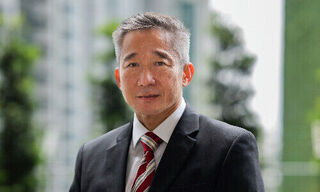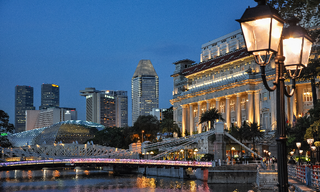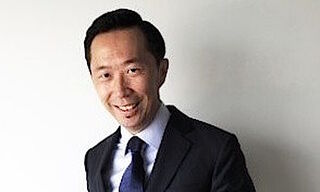Christian Kaelin: «Alternative Citizenship More Essential Than Ever»
While the surge in interest in investment migration, shown by citizens of emerging economies and politically precarious states is somewhat predictable, the big game-changer has been the exponential spike in interest from nationals of highly developed countries, Christian Kaelin writes in an essay for finews.first.
This article is published on finews.first, a forum for authors specialized in economic and financial topics.
The most eye-opening evidence of the benefit of multiple citizenship or residence options was Europe’s complete breakdown of its own borderless Schengen Area during the first lockdown and, most recently, Australia’s decision to ban its own citizens wishing to return from India.
The steadily growing appeal of investment migration over the past two decades has been pushed into overdrive since the outbreak of the pandemic. While the surge in interest shown by citizens of emerging economies and politically precarious states is somewhat predictable, the big game-changer has been the exponential spike in interest from nationals of highly developed countries — and in particular Australia, Canada, the U.K., and the U.S., and also several EU member states.
«This trend prompts even more investors to put in place a Plan B, and even C and D»
Remarkably, the largest growth has been in the U.S. We had an astonishing 207 percent more enquiries from U.S. citizens in 2020 compared to 2019, with 47 percent and 41 percent more enquiries from Canadian and Australian citizens, respectively, and a 31 percent rise in enquiries from U.K citizens post-Brexit — all indications that wealthy international investors are actively seeking relocation and alternative residence options should the need arise.
Enquiries continue to climb in 2021 and we expect this trend to prevail as the political and economic uncertainty that has been intensified by COVID-19 prompts even more investors to put in place a Plan B, and even C and D.
The extraordinary events since the decade began have simultaneously exacerbated push factors such as political and economic instability and reprioritized pull factors, with stability, safety, and access to alternative domiciles with world-class infrastructure and healthcare options. But even preceding the pandemic, positive developments saw investment migration maturing to a sophisticated investment choice and asset class in its own right.
«Investors realize that diversification is as relevant to lifestyle planning as it is to wealth management»
More than simply being associated with ease of travel or acquiring a vacation home or second residence, alternative residence and citizenship are now also recognized for their outstanding access to global investment and operations and their creation of international optionality, security, and legacies for families.
Astute investors now realize that diversification is as relevant to lifestyle planning as it is to wealth management. Spreading assets across a range of markets and jurisdictions means that, over time, the likelihood of harvesting returns is higher than hedging bets on one country alone – even if that is a world-leading nation. Locked down for months, wealthy individuals are exploring options to secure access to other countries, from where they can operate their businesses while leading better quality lives in places where they and their families feel more secure.
«It is evident that investment migration is now very much a mainstream advisory service for wealthy families»
Having options has become an essential part of any wealthy family’s insurance policy for the 21st century – acquiring alternative residence or citizenship enables greater flexibility and access to the world’s leading economies. In the current context, it is vital to design portfolios that diversify jurisdictional risk in terms of personal access rights as well as financial and real estate investment. The more access rights a family has, the more diversified its assets and the lower its exposure to both country-specific, regional, and global volatility will be.
When combined with over a decade of growth, it is evident that investment migration is now very much a mainstream advisory service for wealthy families, international investors, and entrepreneurs.
Christian Kaelin, Chairman of Henley & Partners, is considered one of the world’s foremost experts in investment migration and citizenship-by-investment, a field he pioneered. Holding master’s and PhD degrees in law from the University of Zurich, he is a sought-after speaker and advises governments and international organizations. He is the author, co-author, or editor of many publications.
Previous contributions: Rudi Bogni, Peter Kurer, Rolf Banz, Dieter Ruloff, Werner Vogt, Walter Wittmann, Alfred Mettler, Robert Holzach, Craig Murray, David Zollinger, Arthur Bolliger, Beat Kappeler, Chris Rowe, Stefan Gerlach, Marc Lussy, Nuno Fernandes, Richard Egger, Maurice Pedergnana, Marco Bargel, Steve Hanke, Urs Schoettli, Ursula Finsterwald, Stefan Kreuzkamp, Oliver Bussmann, Michael Benz, Albert Steck, Martin Dahinden, Thomas Fedier, Alfred Mettler, Brigitte Strebel, Mirjam Staub-Bisang, Nicolas Roth, Thorsten Polleit, Kim Iskyan, Stephen Dover, Denise Kenyon-Rouvinez, Christian Dreyer, Kinan Khadam-Al-Jame, Robert Hemmi, Anton Affentranger, Yves Mirabaud, Katharina Bart, Frédéric Papp, Hans-Martin Kraus, Gerard Guerdat, Mario Bassi, Stephen Thariyan, Dan Steinbock, Rino Borini, Bert Flossbach, Michael Hasenstab, Guido Schilling, Werner E. Rutsch, Dorte Bech Vizard, Adriano B. Lucatelli, Katharina Bart, Maya Bhandari, Jean Tirole, Hans Jakob Roth, Marco Martinelli, Thomas Sutter, Tom King, Werner Peyer, Thomas Kupfer, Peter Kurer, Arturo Bris, Frederic Papp, James Syme, Dennis Larsen, Bernd Kramer, Ralph Ebert, Armin Jans, Nicolas Roth, Hans Ulrich Jost, Patrick Hunger, Fabrizio Quirighetti, Claire Shaw, Peter Fanconi, Alex Wolf, Dan Steinbock, Patrick Scheurle, Sandro Occhilupo, Will Ballard, Nicholas Yeo, Claude-Alain Margelisch, Jean-François Hirschel, Jens Pongratz, Samuel Gerber, Philipp Weckherlin, Anne Richards, Antoni Trenchev, Benoit Barbereau, Pascal R. Bersier, Shaul Lifshitz, Klaus Breiner, Ana Botín, Martin Gilbert, Jesper Koll, Ingo Rauser, Carlo Capaul, Claude Baumann, Markus Winkler, Konrad Hummler, Thomas Steinemann, Christina Boeck, Guillaume Compeyron, Miro Zivkovic, Alexander F. Wagner, Eric Heymann, Christoph Sax, Felix Brem, Jochen Moebert, Jacques-Aurélien Marcireau, Ursula Finsterwald, Claudia Kraaz, Michel Longhini, Stefan Blum, Zsolt Kohalmi, Karin M. Klossek, Nicolas Ramelet, Søren Bjønness, Lamara von Albertini, Andreas Britt, Gilles Prince, Darren Willams, Salman Ahmed, Stephane Monier, and Peter van der Welle, Ken Orchard, Christian Gast, Jeffrey Bohn, Juergen Braunstein, Jeff Voegeli, Fiona Frick, Stefan Schneider, Matthias Hunn, Andreas Vetsch, Fabiana Fedeli, Marionna Wegenstein, Kim Fournais, Carole Millet, Ralph Ebert, Swetha Ramachandran, Brigitte Kaps, Thomas Stucki, Neil Shearing, Claude Baumann, Tom Naratil, Oliver Berger, Robert Sharps, Tobias Mueller, Florian Wicki, Jean Keller, Niels Lan Doky, Karin M. Klossek, Ralph Ebert, Johnny El Hachem, Judith Basad, Katharina Bart, Thorsten Polleit, Bernardo Brunschwiler, Peter Schmid, Karam Hinduja, Stuart Dunbar, Zsolt Kohalmi, Raphaël Surber, Santosh Brivio, Gérard Piasko, Mark Urquhart, Olivier Kessler, Bruno Capone, Peter Hody, Lars Jaeger, Andrew Isbester, Florin Baeriswyl, and Michael Bornhaeusser, Agnieszka Walorska, Thomas Mueller, Ebrahim Attarzadeh, Marcel Hostettler, Hui Zhang, Michael Bornhaeusser, Reto Jauch, Angela Agostini, Guy de Blonay, Tatjana Greil Castro, Jean-Baptiste Berthon, Marc Saint John Webb, Dietrich Goenemeyer, Mobeen Tahir, Didier Saint-Georges, Serge Tabachnik, Rolando Grandi, Vega Ibanez, Beat Wittmann, Carina Schaurte, and David Folkerts-Landau, Andreas Ita, Teodoro Cocca, Michael Welti, Mihkel Vitsur, Fabrizio Pagani, Roman Balzan, and Todd Saligman.



























